A new class of teachers
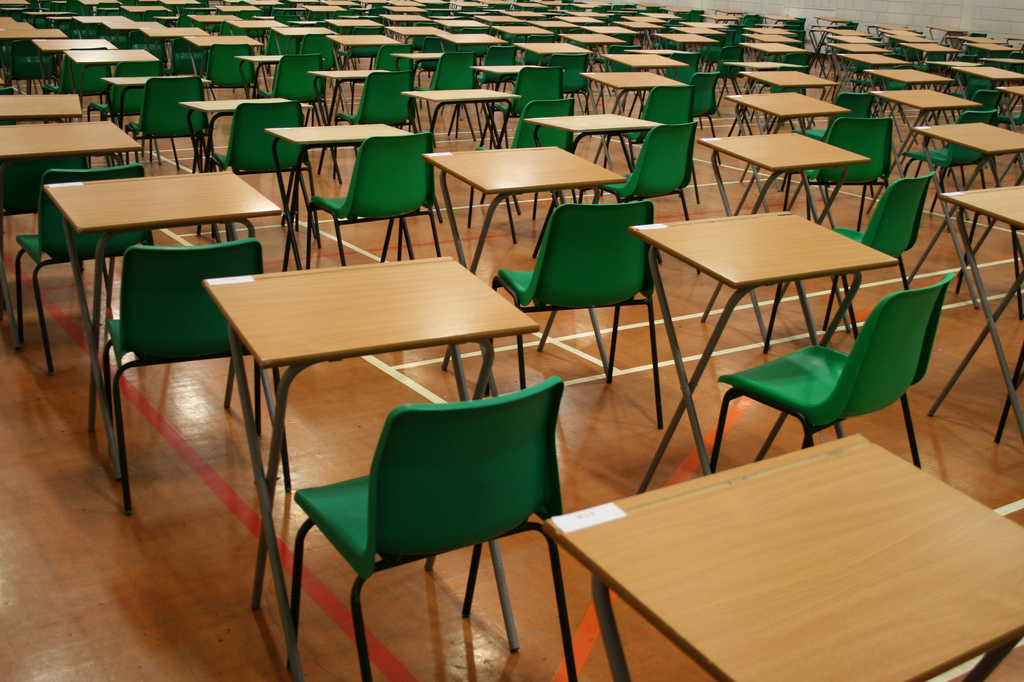
The next generation of educators is being schooled in a different approach to the classroom
Published 24 September 2015
It’s a hard business. Intellectually demanding, physically exacting, and emotionally full-on.
That’s what a new generation of student teachers at the Melbourne Graduate School of Education has discovered after full immersion in the first phase of their training in the Master of Teaching course.
From the start, these students test the theory of university lectures against the experience of being in front of a school class two days a week. It’s not dissimilar to the way trainee doctors or nurses test their skills in teaching hospitals, hence the term “clinical practice” – the requirement that teachers assess and diagnose the individual learning needs of students.
“The whole experience has underlined for me just how hard teaching can be,” says one of the student teachers, Tara Crivari.
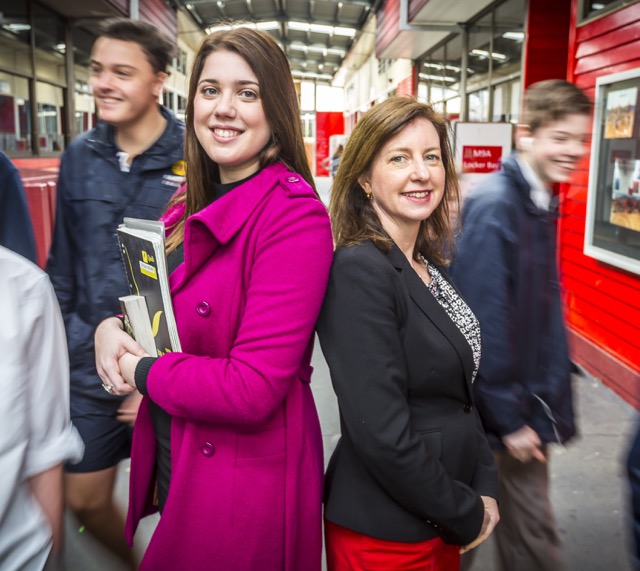
But it’s an approach that’s paying off. Graduates of the Master of Teaching program – which only accepts the highest achievers – are highly sought after by school principals. And these newly-qualified teachers are able to hit the ground running: more than 90 per cent report that they feel well-prepared for what they find in the classroom.
Just as well.
A level of professional self-confidence is the only defence these days against the assaults of politicians, the demands of parents, and the expectations of young digital natives, long accustomed to instant gratification.
The role of education
The arguments about schooling and what teachers “should do” run the gamut – from the call for back to basics to a view that, in the age of Google, the role of the teacher should be more scribe on the side than sage on the stage.
All this is set against highly publicised global measures that rank countries according to educational performance. As a result, it’s not surprising to see that debate now centres on whether it’s reform that’s needed, or a completely new form of educational delivery.
The pressure on universities offering degrees in education has never been greater. The core business remains – the training of teachers who will have a transformative effect on the lives of students. But in the 21st century, there is a premium on educators who know how to challenge and constantly extend the learning capacity of those in their care.
Program Co-ordinator Dr Daniela Acquaro, a University of Melbourne graduate and teaching veteran herself, is the first to say that the Master of Teaching course is “miles in front of anything I studied over 20 years ago”.
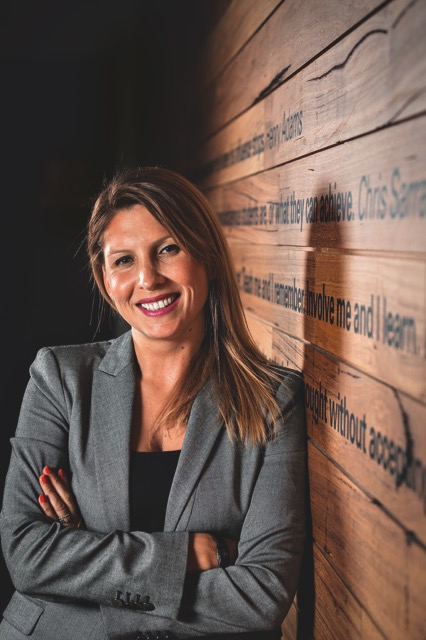
She says the feedback speaks for itself. “We have principals contacting us all the time. It’s because they are seeing the different way these graduates think. And that’s because of what we do here.
We explicitly teach them to think about their practice in the classroom
That means a program heavily focused on “differentiated teaching” – the art and science of adapting lessons to meet the needs of individual students, rather than simply expecting them to keep up regardless of their circumstances.
Through a network of partner schools, Master of Teaching candidates are constantly testing what they learn at university with what they encounter in the classroom.
Hard work
For those who may approach teaching with a somewhat romanticised view – that it will be an opportunity to star in an updated version of Goodbye, Mr Chips or Welcome Back, Kotter – the course’s rigour provides an instant corrective.
Dr Acquaro is unapologetic about the demands. “The course is damned hard and it needs to be because teaching is hard work,” she says.
You are always thinking about how best to address the needs of students and how to help them become successful learners.
“If you are doing the job well, you are constantly assessing, implementing strategies and evaluating, which is demanding.
“But the one thing that teaching has over all the other professions is that it is hugely rewarding and uplifting. Spending time with young people and helping them find a piece of the puzzle that connects to something else, well, that’s a gift.”
The Graduate School’s 2015 intake has weathered the first shock and awe phase of being thrown in the deep end. Trainees have to quickly come to terms with the huge variability among school students, particularly in the first years of high school.
This is certainly true of Kambrya College, a large comprehensive high school in Berwick, in outer eastern Melbourne. Under Principal Michael Muscat, Kambrya has dramatically lifted from being one of the state’s poorest performers, to one where Year 12 VCE students are in the top 25 per cent of the state school cohort.
That success has been built on a model of instruction that puts the stress on subject clarity, differentiated teaching, monitoring of data, and clear learning intentions.
Kambrya has simultaneously addressed under-performance and stretched the best.
As a result, it’s a near-perfect fit for Ms Crivari and fellow student Dr Sarah Avitabile, part of a small team of trainees who have spent the year honing their skills in extended classroom sessions.
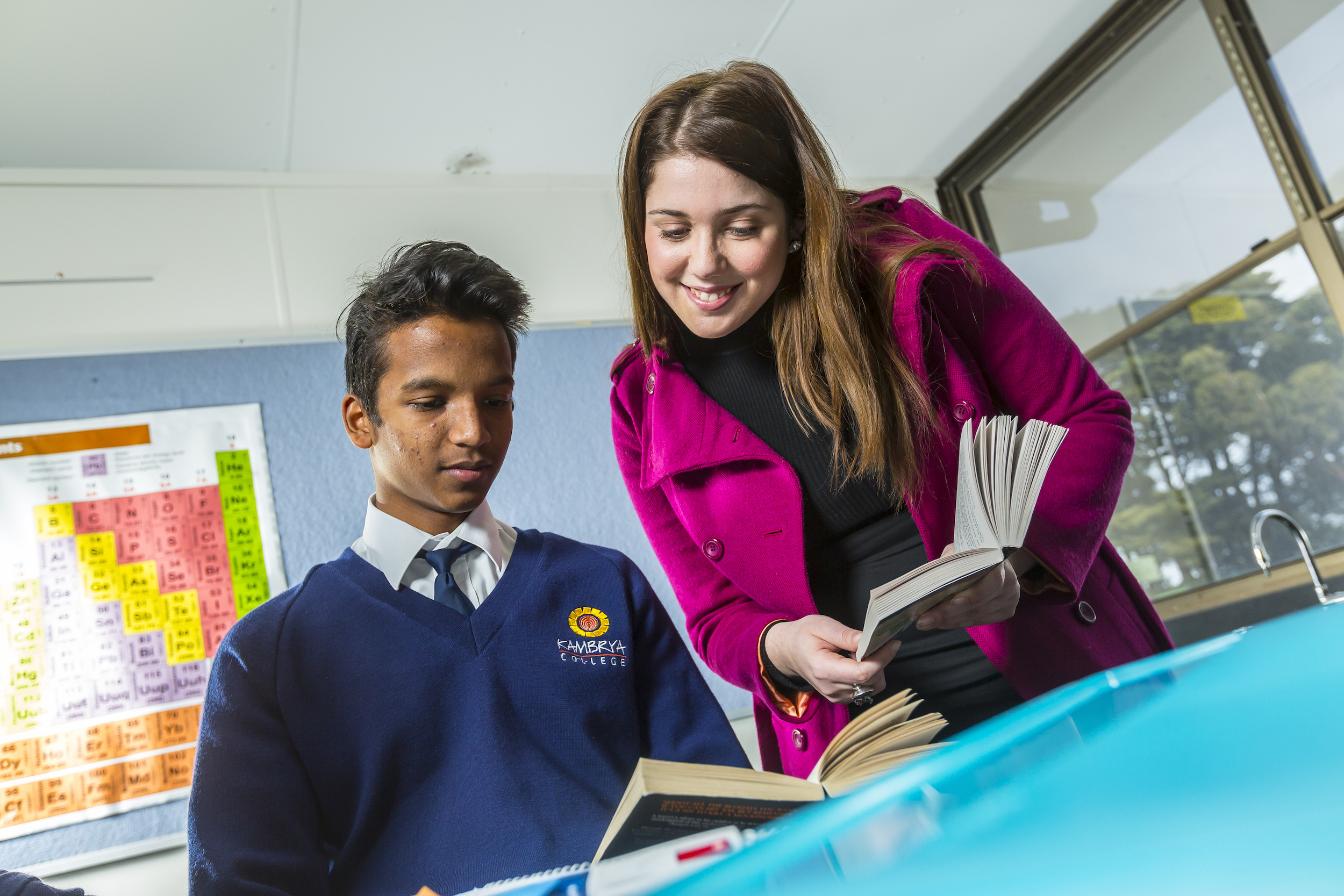
At 48, Dr Avitabile is a mid-career changer. She spent 20 years as a nurse, before returning to study and completing a PhD in fire ecology. She brings a high level of science expertise and significant life experience to teaching and, with only a few months exposure to boisterous teenagers, she knows she has found her true vocation. “I love it,” she says.
I love the instant feedback from the class. The relationship you have with students and the general busyness of the day. That said, it’s the hardest thing I’ve ever done and I’ve done a lot of hard things.
For Dr Avitabile, that includes time spent nursing terminally ill children, combining work and study as a mature-age student, and the demands of a doctorate. None of it compares, she says, with the challenge and thrill of teaching a Year 8 class about particle theory and “watching a student demonstrate their understanding by being able to explain the concept to someone else”.
After teaching a Year 10 English class, Ms Crivari, 23, feels much the same. She says the experience of being in the classroom has made her “much more reflective about my practice”.
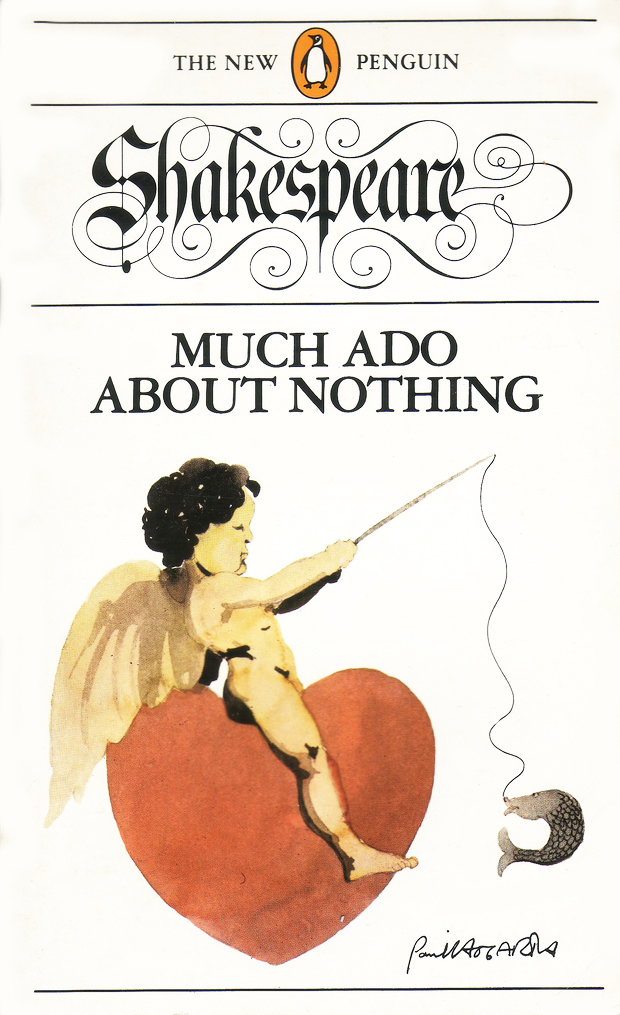
In setting out to demystify Shakespeare’s Much Ado About Nothing she quickly realised that her own love of the text meant she was taking too much for granted. She slowed down, focused on students who were struggling with comprehension, and got the whole class to act out the play.
The best thing I have learnt this year is the importance of adjusting my teaching.
“Being set in your ways or being stubborn should never come into it.”
But what about the application of clinical practice, based as it is on the notion of diagnostic intervention and the ability to promote intellectual growth for every student? How do novices get a handle on this?
The Graduate School’s reputation for excellence, confirmed again in the past year with its ranking as the number one graduate school of education in Australia, is the key.
Under the leadership of Dean (and University of Melbourne graduate) Professor Field Rickards and with globally recognised researchers such as Professor Patrick Griffin - who gained his Master of Education from Melbourne in 1976 - and Professor John Hattie, the school devotes immense resources to defining what it is that constitutes excellence in teaching.
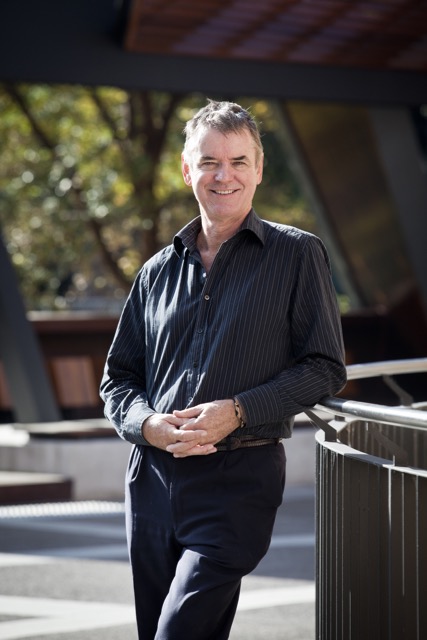
As Daniela Acquaro emphasises, students are exposed to a range of subject material that has been refined over the years. “The starting point for us is to focus on the research that works,” she says.
We’re conscious there is a lot of misinformation out there. A lot of contradictory advice.
Professor Hattie’s seminal insight is that teachers need to “know thy impact”. It’s a mantra that Avitabile and Crivari probably recite in their sleep.
It’s also central to how they prepare for a key part of their Master of Teaching assessment – the clinical practice exam.
The CPE, daunting for many, is an oral presentation that requires candidates to demonstrate their understanding through a case study.
Ms Crivari offers up an example of a female student, on the surface a confident, conscientious member of the class, but one who struggled with comprehension.
Having noticed that the student failed to write a single note during lessons and as a result retained little of what was taught, Ms Crivari persuaded her to take dot points of key messages and then to use this material to help clarify her writing.
Dr Avitabile has had similar challenges with her science students, some of whom fail to see the relevance of what they are being taught. “I think we’ve lost our way on this,” she says.
We need to value the teaching of science and that means getting experts into primary school so we can start early.
The hope is that the mindset and training embraced by the Graduate School has a contagion effect, promoting an Australia-wide shift toward high-quality graduate qualifications and a generation of teachers who can accommodate challenge and complexity.
A bonus would be in achieving something close to what we see in high-performing Finland and Singapore, where teachers are prized professionals, on a par with doctors.
But ultimately, the beneficiaries will be future generations of children – an incalculable return on investment.
Banner image: Project 365 #147: 270509 Testing Times Ahead. Photographer Pete. Creative Commons.
This article originally appeared in 3010 magazine.
